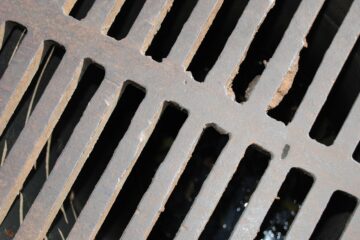![]()
Introduction:
The first and second waves of COVID-19 in India have left the country dismayed by the grim death statistics. India Incorporations were seen divided and confused, weighing their responsibility and liability in the event of the untimely death of its employee due to this very new virus. To assist its personnel combat the pandemic organizations had been visible to pop out with numerous methods to guide its body of workers in these trying times. In this article, we are going to understand the significance of employers’ liability insurance during Covid-19.
Employers Liability Insurance
Let’s first try to understand what is employer liability[1] insurance? If a person employs people, then he must have this policy. As the employer, liability insurance is an insurance policy that covers complaints filed by employees who have suffered a work-related accident or illness that are not covered; by employee (workmen’s) compensation. It is a type of liability insurance to protect organizations against costs linked with workplace injuries, illnesses, and deaths.
However, this insurance does not cover the legal costs of employee claims for discrimination, sexual harassment, or unlawful dismissal. To cover situations like these an employer should purchase a separate type of policy known as employment practices liability insurance. It has been seen that most workers; compensation insurance policies also include employer liability insurance and in these types of liability insurances, there is a limit fixed on amounts to be paid per employee, per policy, or incident.
Employers are responsible for the health and safety of their employees whilst they are at work. If an employee is injured, at work they may try to claim compensation from the employer. These claims can run into thousands and lakhs of rupees as the case may be. So, it’s necessary to have protection in place for both the employer and the employee.
Who requires Employers’ Liability Insurance?
Every company or employer who wants to be protected; against financial loss due to work-related illness or accident needs employer’s liability insurance. Even if the company has strict safety protocols in its workplace, accidents can still happen and it can affect the finances of the entire company if the employer is not adequately insured.
Employers’ Liability and Covid-19
The coronavirus pandemic is expected to present employers and their liability insurers with some interesting challenges. Though to help their employees fight the pandemic, companies have been observed to suggest various ways to support their employees during these troubled times. Including benefits such as improving health insurance coverage to cover COVID 19 and paying medical expenses for employees who are infected with this virus. Establishment for vaccination and test camps, charity payments to the families of deceased employees, providing financial support for the education of the children of deceased employees, continued payment of wages for the deceased employee for a certain period, and many other facilities.
Despite the granting of such benefits, the question remains: Would the employer be liable[2] for death related to COVID-19 if the employee contracted the virus while working? To assess; an employee’s liability, it is important to be familiar with the applicable laws on accidents at work, government-issued notices/circulars related to COVID 19, and judicial precedents on related issues.
India has laws providing compensation for workplace injuries and deaths, most notably the Employees Compensation Act 1923. Answering the question of whether a COVID 19 related death can be regarded as an infringement under EC law would require an examination of the applicable provisions of the Employees Compensation act. Section 3 of the said act provides for the payment of compensation to employees (or their relatives) in the event of personal injury caused by an occupational accident and lead to disability or death.
First of all, it should be pointed out that certain occupational diseases within the meaning of the term “accident” are also included in Section 3; such occupational diseases are listed in Annex III of the EC Act and these diseases are also related to the type of employment. In Annex III, Part A, Entry 1, “infectious and parasitic diseases” are referred to as occupational diseases if they occur in an occupation with a particular risk of infection. These occupations are also listed in Annex III as follows:
(i)All work involving health exposure or laboratory work;
(ii)All work related to veterinary work;
(iii)Work in connection with the handling of animals, animal carcasses, parts of such carcasses or goods that may have been contaminated, by animals or animal carcasses; and
(iv)Other work that poses a particular risk of contamination.
As can be seen from the above, infection with an infectious disease must occur in the context of employment in one of the occupations mentioned above to make the employer liable for damages under the EC act.
While points (i) to (iii) above are only applicable in specific sectors, it is necessary to examine the broad nature of point (iv) to analyze whether the employer can be held liable for a covid related death under the act.
A workplace with physically active workers can be considered at risk of contracting COVID 19 (an infectious disease) and is therefore dealt with under point (iv) in such case the facilities would be responsible for paying compensation for each case of Covid 19 (regardless of whether the patient recovers or dies).
By above, there is considerable room for interpretation about point (iv) entry 1 of Annex III Part A. However, until the government puts forward a clarification or amendment to the law to include COVID 19[3] as an occupational disease in all professions, or until the Indian Judiciary interprets the law in force, the industry does not appear to be dealing with cases or deaths related to COVID 19 as a compensation issue according to the EC Act.
Therefore, any compensation in the present scenario would be in line with, or at the employer’s discretion, if companies have adopted an internal policy related to fatalities in the workplace, it must be followed. To settle the outstanding fees; of deceased employees, the companies would be obliged to pay gratuity (which in the event of death is applicable even if the employee has not completed five years of service).
Employers and their insurers need to ensure that a risk assessment has been carried out to identify the risks of COVID 19 transmission in the workplace, to minimize those risks to the lowest possible level, and to ensure that this system is in place. It will be difficult for a claimant to establish a breach of duty if it can be demonstrated that the appropriate control measures were in place and correctly applied.
Another issue is causality and how an applicant can demonstrate that exposure to covid has occurred in the workplace rather than in the general public. It becomes more problematic for applicants as current evidence suggests that covid are spreading rapidly but is variable and sometimes protracted. Due to the long incubation period uncertainty, remains about the exact nature of the transfer, and it still seems extremely difficult to identify the source of the infection.
How will the courts deal with this issue?
The obvious comparison is to consider the approach taken in asbestos-related litigation where exposure to even a small amount of asbestos in the workplace can lead to further development of mesothelioma and other lung diseases after many years.
Asbestos-exposed claimants found themselves in the impossible position to prove where the single strand of asbestos that caused their mesothelioma was, inhaled. In the year 2002, a case related to asbestos exposure was placed before the House of Lords.
The House of Lords was not ready to leave these people without compensation. So, in Fairchild v. Glenhaven Funeral Services Ltd[4], the court opted for a test of causation that did not require the claimants to determine where the offending asbestos had been inhaled but rather whether an employee had significantly increased the risk of harm to the claimant.
The Hon’ble Supreme Court, in Consumer Education and Research Centre v. Union of India[5], has discussed worker’s right to a healthy and safe work environment citing the apex court’s precedents which included Olga Tellis v. Bombay Municipal Corporation[6], setting out jurisprudence on right to life and the precedents in which the courts have enacted provisions for the welfare of the worker, the Court considered the right of workers to health and healthcare (during or after service) as an integral part of the right to life as enshrined in Article 21 of the Indian Constitution.
It remains to be seen whether the courts will act similarly about COVID 19. It is arguably even less likely that the outbreak of a COVID 19 infection at any given time can ever be positively attributed to a particular source. But an understanding of transmission and sources can change that.
Conclusion
It is seen that some of India’s large employers are going out of their way to take care of families of employees who have died because of COVID-19. Monetary help is being given; to the families of such workers. Companies that require workers to work by coming physically to their work during the pandemic must reassure workers that they and their families will be looked after in the event of illness. The work done by employers to look after their employees is unprecedented. It is possible that some organizations are not helping their workers on their own and this; is where the workers will ask for compensation and employers liability insurance will come into the picture.
In general, employers and insurers are prepared for a wave of legal disputes that can be triggered by alleged exposure to the virus in the workplace. With COVID-19, seeking to grow to be a part of the “new normal” in our society, time will show how the courts and employers are going to deal with the claims.
References:
[1] Adam Hayes, Employers’ Liability Insurance, INVESTOPEDIA (Oct. 21, 2021), https://www.inestopedia.com/terms/e/employers-liability-insurance.asp.
[2] Vikram Bhargava & Raveena Verma, Covid-19 Death: What Is The Employer’s Liability?, MONDAQ (Oct. 06, 2021), https://www.mondaq.com/india/employment-and-workforce-wellbeing/1116594/covid-19-death-what-is-the-employer39s-liability.
[3] David Brown & Sally Brock, Employers Liability claims for COVID-19 in the Workplace: are the floodgates opening?, WOMBLE BOND DICKINSON (Jun. 25, 2020), https://www.womblebonddickinson.com/uk/insight/articles-and-briefings/employers-liability-claims-covid-19-workplace-are-floodgates.
[4] Fairchild v. Glenhaven Funeral Services Ltd, UKHL 22, (2002).
[5] Consumer Education and Research Centre v. Union of India, 1995 AIR 922, 1995 SC (3) 42.
[6] Olga Tellis & Ors v. Bombay Municipal Corporation, 1986 AIR 180, 1985 SCR Supl. (2) 51.



0 Comments